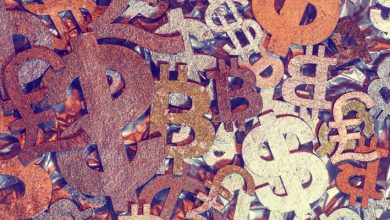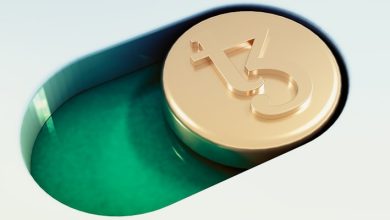What Are DAOs and How Do They Work?

- Understanding Decentralized Autonomous Organizations (DAOs)
- The Rise of DAOs in the Digital Age
- Exploring the Inner Workings of DAOs
- The Role of Smart Contracts in DAO Operations
- Challenges and Benefits of Implementing DAOs
- Examples of Successful DAO Projects
Understanding Decentralized Autonomous Organizations (DAOs)
Decentralized Autonomous Organizations (DAOs) are a new and innovative way of organizing business operations through smart contracts and blockchain technology. These organizations operate without the need for a centralized authority, making decisions through consensus mechanisms built into their code.
DAOs are designed to be transparent, secure, and efficient, allowing for a more democratic decision-making process. Members of a DAO typically hold tokens that represent their stake in the organization and give them voting power on various proposals.
One of the key features of DAOs is their ability to automate certain functions through smart contracts. These contracts execute predefined rules and processes without the need for human intervention, reducing the risk of fraud or manipulation.
DAOs can be used for a wide range of purposes, from managing investment funds to governing online communities. They offer a decentralized alternative to traditional organizational structures, allowing for greater efficiency and flexibility in decision-making.
Overall, DAOs represent a new paradigm in organizational design, leveraging blockchain technology to create a more democratic and transparent way of working together. As this technology continues to evolve, DAOs are likely to play an increasingly important role in shaping the future of business and governance.
The Rise of DAOs in the Digital Age
Decentralized Autonomous Organizations (DAOs) are gaining prominence in the digital age as a revolutionary way to organize and govern communities without the need for traditional hierarchical structures. DAOs operate through smart contracts on blockchain networks, allowing for transparent and automated decision-making processes.
One of the key advantages of DAOs is their ability to incentivize participation and engagement from members through the use of native tokens. These tokens can be used for voting on proposals, funding new initiatives, and rewarding contributors for their work within the organization.
DAOs are able to operate autonomously, with decisions being made based on the consensus of their members. This eliminates the need for centralized authorities or intermediaries, making DAOs a truly democratic and decentralized way to govern and manage resources.
As the popularity of DAOs continues to grow, we are witnessing a shift towards more collaborative and community-driven models of organization. DAOs have the potential to disrupt traditional power structures and create new opportunities for individuals to participate in decision-making processes on a global scale.
Exploring the Inner Workings of DAOs
Exploring the inner workings of DAOs can provide valuable insights into how these decentralized organizations function. DAOs operate on a set of smart contracts that are stored on a blockchain, allowing for transparent and automated decision-making processes. Members of a DAO can participate in voting on proposals, contributing resources, and earning rewards based on their level of involvement.
One of the key features of DAOs is their ability to operate without a central authority, relying instead on code and consensus mechanisms to govern their activities. This decentralized structure helps to ensure that decisions are made fairly and transparently, with all members having an equal say in the direction of the organization. Additionally, DAOs can be customized to suit the specific needs and goals of the community they serve.
Smart contracts play a crucial role in the functioning of DAOs by executing predefined rules and automating processes such as voting, fund management, and resource allocation. These contracts are immutable and self-executing, meaning that they cannot be altered once deployed, providing a high level of security and trust for all members. By leveraging blockchain technology, DAOs can achieve a level of efficiency and accountability that traditional organizations often struggle to match.
Overall, exploring the inner workings of DAOs reveals a new paradigm of organizational structure that is revolutionizing the way communities collaborate and make decisions. By harnessing the power of decentralized governance and smart contracts, DAOs offer a more inclusive, transparent, and efficient alternative to centralized institutions. As the popularity of DAOs continues to grow, it is clear that they have the potential to reshape the future of how organizations are structured and operated.
The Role of Smart Contracts in DAO Operations
Smart contracts play a crucial role in the operations of Decentralized Autonomous Organizations (DAOs). These self-executing contracts are written in code and automatically enforce the terms of an agreement when specific conditions are met.
By utilizing smart contracts, DAOs can automate various processes, such as voting on proposals, distributing funds, and executing tasks without the need for intermediaries. This not only increases efficiency but also ensures transparency and trust among DAO members.
Smart contracts are stored on the blockchain, making them immutable and resistant to tampering. This provides an additional layer of security for DAO operations, as transactions are recorded on a decentralized ledger that is visible to all participants.
Furthermore, smart contracts in DAOs can help streamline decision-making processes by enabling transparent governance mechanisms. Members can submit proposals, vote on them, and see the outcomes in real-time, all without the need for a central authority to oversee the process.
Overall, smart contracts form the backbone of DAO operations, enabling these decentralized organizations to function autonomously, securely, and efficiently. Their role in facilitating trustless interactions and automating key processes makes them essential tools for the success of DAOs in the evolving landscape of decentralized finance.
Challenges and Benefits of Implementing DAOs
Implementing DAOs can bring both challenges and benefits to organizations looking to adopt this decentralized model. One of the main challenges of implementing DAOs is the complexity of setting up and maintaining the infrastructure required for these decentralized autonomous organizations to function effectively. This includes creating smart contracts, establishing governance mechanisms, and ensuring the security of the DAO.
On the other hand, there are several benefits to implementing DAOs. One of the primary benefits is the increased transparency and accountability that DAOs can provide. Because decisions are made collectively by the members of the DAO through voting mechanisms, there is a higher level of transparency in the decision-making process. Additionally, the use of smart contracts can help automate processes and reduce the need for intermediaries, leading to cost savings and efficiency gains.
Another benefit of implementing DAOs is the potential for greater inclusivity and participation. DAOs allow for anyone to become a member and have a say in the decision-making process, regardless of their background or location. This can help democratize decision-making and empower individuals who may not have had a voice in traditional organizational structures.
Overall, while there are challenges to implementing DAOs, such as the complexity of setting up the infrastructure, the benefits of increased transparency, efficiency, inclusivity, and accountability make them an attractive option for organizations looking to embrace decentralization and innovation in their operations.
Examples of Successful DAO Projects
Examples of successful DAO projects include projects like “The DAO”, which aimed to create a decentralized investment fund. Another successful project is “MolochDAO”, which focuses on funding Ethereum developers. “MakerDAO” is a popular decentralized stablecoin platform that has gained traction in the crypto community. These projects demonstrate the potential of DAOs to revolutionize various industries by enabling decentralized decision-making processes. With proper governance structures in place, DAOs can effectively manage funds, allocate resources, and make decisions autonomously. It is essential for DAO projects to prioritize transparency, security, and community engagement to ensure their long-term success and sustainability.



